
Closed
Listen, Hear Our Voices — Large projects
Last Update: October 27, 2025
Canada
Get funding to digitize heritage related documentary
Grant and Funding
At a glance
Funding available
Financing goals
Increasing community impact
Integrate new technologies
Develop employee skills
Eligible Funding
- Maximum amount : 100,000 $
- Minimum amount : 25,000 $
- Up to 85% of project cost
Timeline
- Open Date : December 11, 2023
- Closing date : January 24, 2024
Eligible candidates
Eligible Industries
- Information and cultural industries
Location
- Canada
Legal structures
- Non-profit
- Public or Parapublic institution
Annual revenue
- All revenue ranges
Organisation size
- All organization sizes
Audience
- Indigenous Peoples
Non-profit candidates
Sector of operation
- Culture and Arts
- Economic, Social and Community Development
- Diversity and Inclusion
Target groups
- Indigenous peoples
Revenue structures
- All structures
Scope
- Local
- Regional
- Provincial
- National
Overview
Build the skills, knowledge and resources needed to digitize and preserve documentary heritage related to Indigenous languages and cultures.
Activities funded
- Digitization of documentary heritage from textual documents, photographs, audio cassettes, reel-to-reel, VHS tapes, and video cassettes.
- Preparing items for digitization.
- Creating an inventory of your collection.
- Prioritizing items in danger of being lost.
- Describing and organizing items in their digital or original formats.
- Developing a business case for a shared digital preservation system.
- Training staff on digitization.
- Creating training materials to build digitization skills.
- Developing and running training programs to help communities digitize their own collections.
- Buying or repairing digitization equipment.
- Purchasing software to digitize textual, photographic or audiovisual materials.
Examples of admissible projects:
$ 50,000
Research and develop a community composting program in indigenous communities
$ 90,000
Implement an electric vehicle charging station network in indigenous communities
$ 70,000
Develop a pilot project for solar energy in indigenous communities
$ 35,000
Implement an environmental awareness program focusing on reducing plastic use in schools
$ 70,000
Develop a green technology initiative to reduce water waste
$ 100,000
Launch a pilot project for wind energy in remote indigenous communities
Eligibility
- The applicant must be an Indigenous nation (First Nations, Inuit, or Métis Nation), Indigenous government, or Indigenous non-profit organization.
- The organization must be not-for-profit and provide proof of non-profit status, except for band councils or departments within a nation’s Administration.
- Both incorporated and non-incorporated organizations can apply; incorporated organizations must provide proof of incorporation.
- Non-incorporated organizations need a letter of reference from a recognized government or association.
- Organizations and their direct affiliates with outstanding reports from previous funding through LAC are ineligible.
- For large projects, non-incorporated organizations must work with an incorporated organization that is eligible as the primary applicant.
- Applicants can apply either as a primary applicant or as a partner (secondary applicant).
Who is eligible?
- Indigenous nations (First Nations, Inuit, or Métis Nation)
- Indigenous governments
- Indigenous non-profit organizations
- Cultural centres
- Community organizations
- Historical societies
- Libraries or archives
- Museums
- Band councils or departments within a nation’s Administration
- First Nation, Inuit, or Métis Nation government organizations
Who is not eligible
- Businesses and for-profit Indigenous organizations.
- Organizations, and their direct affiliates, with outstanding reports for previously funded projects.
Eligible expenses
- Digitization by your organization, a partner, or a third-party.
- Consultants and professional services related to digitization.
- Purchase, rental, or repair of equipment or software for digitization and preservation of material.
- Description, transcription, and development of finding aids for materials being digitized within the project.
- Shipping and insuring material.
- Salaries and wages for project completion.
- Training and workshop activities.
- Travel for project staff (must follow the National Joint Council's Travel Directive).
- Honorariums and gifts of protocol to Indigenous Elders.
- General administration costs such as office supplies, long-distance telephone calls, postage, and messenger services.
- Project management fees (project budget and schedule oversight) up to 15% of the requested funding.
Eligible geographic areas
The eligible geographic zones for this grant cover various regions within Canada. Companies located in these specified areas can apply for the grant.
- British Columbia
- Alberta
- Ontario
- Quebec
- Nova Scotia
Selection criteria
- Feasibility of the project and clarity of the approach.
- Urgency of the work due to the condition of the collection.
- Benefits of the project to the applicant organization, partner organizations, communities, researchers, and Canadians.
How to apply
1
Determine EligibilityEnsure your organization is an Indigenous nation, government, or non-profit organization based on the eligibility criteria.
2
Prepare DocumentationGather all necessary documents, including proof of non-profit status for incorporated organizations or a letter of reference for non-incorporated organizations.
- Prepare a detailed project proposal that outlines objectives, methodologies, and expected benefits.
- Develop a comprehensive project budget, including any in-kind contributions or other funding sources.
3
Compose ApplicationUtilize the project proposal and budget to complete the application form.
Address project feasibility, urgency, and anticipated benefits for stakeholders.
4
Submit ApplicationEmail the completed application form, along with all required supporting documentation, to ecoutezentendrenosvoix-listenhearourvoices@bac-lac.gc.ca.
Submit the application before the designated deadline.
5
Receive DecisionAwait notification via email regarding the approval or decline of your application.
Follow the instructions provided for next steps if your application is successful.
Additional information
- Approved applicants will be notified by email, detailing further steps in the process.
- Organizations must submit a final report within 30 days after the project's end date.
- Funding follows the federal government's fiscal year, from April 1st to March 31st.
- 85% of the funding for large projects is provided at the start, with 15% following submission of an interim report.
- Funding cannot exceed 100% of the project's total cost when combined with other government support.
- Successful organizations must sign a contribution agreement to receive funds.
- Confidentiality is maintained until projects are publicly announced.
Contacts
ecoutezentendrenosvoix-listenhearourvoices@bac-lac.gc.ca
1-833-711-9048
Canada
Apply to this program
Frequently Asked Questions about the Listen, Hear Our Voices — Large projects Program
Here are answers to the most common questions about the Listen, Hear Our Voices — Large projects. This section explains what the program is, how much funding is available, eligibility requirements, application deadlines, and other important details to help you determine if this grant is right for your business.
What is the Listen, Hear Our Voices — Large projects?
How much funding can be received?
What is the deadline to apply?
Who is eligible for the Listen, Hear Our Voices — Large projects program?
What expenses are eligible under Listen, Hear Our Voices — Large projects?
Who can I contact for more information about the Listen, Hear Our Voices — Large projects?
Where is the Listen, Hear Our Voices — Large projects available?
Apply to this program
More programs like this

Grant and FundingClosed
Industrial Research Assistance Program (IRAP) – AI Assist
National Research Council Canada (NRC)Supports Canadian SMEs in adopting and integrating advanced AI solutions
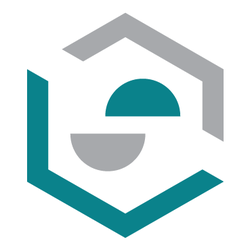
Partnering and CollaborationGrant and FundingOpen
Strategic Innovation Fund (SIF)
Innovation, Science and Economic Development Canada (ISED)Strategic Innovation Fund supports transformative Canadian economic investments

Grant and FundingClosed
Creative Export Canada (CEC) — Export-Ready Stream
Canadian HeritageFunding for Canadian creative industry exports

Grant and FundingClosed
ISED — Artificial intelligence (AI)
Innovation, Science and Economic Development Canada (ISED)Supports testing innovative AI prototypes for Canadian government needs
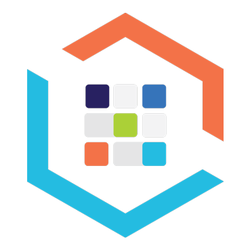
Grant and FundingOpen
Global Innovation Clusters
Innovation CanadaFinancial assistance to work in collaboration on innovation projects


Grant and FundingLoans and Capital investmentsClosed
Production program — French market budgets under $3.5M
Telefilm CanadaFinancing for French-language feature films
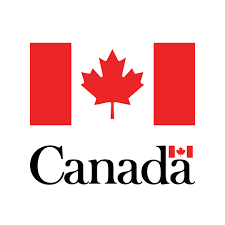
Grant and FundingOpen
IP for Business
Canadian Intellectual Property Office (CIPO)Intellectual property training, tools and expertise
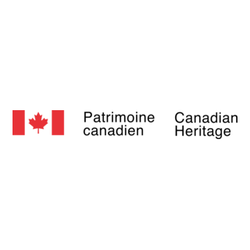
Wage Subsidies And InternsOpen
Canada Book Fund (CBF) — Support for Organizations – Internships
Canadian HeritageFinancial support for internships in the book industry
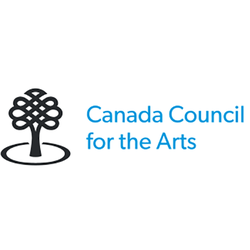
Grant and FundingClosed
Arts Abroad — Residencies
Canada Council for the Arts (CCA)Grant for international arts research or networking
Sign up to our platform to access the Listen, Hear Our Voices — Large projects information sheet for free
Get access to 4,000+ programs, practical guides, personalized alerts, and an AI assistant to support your grant applications.